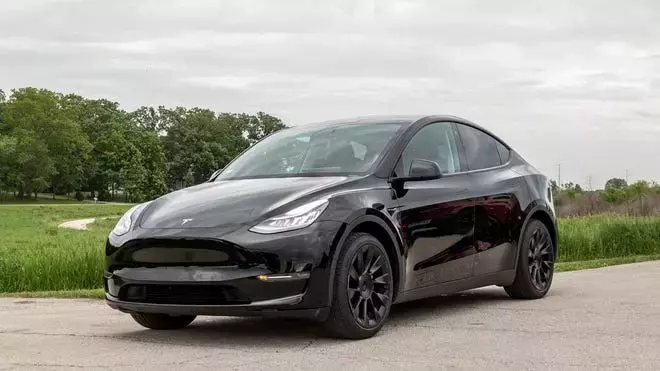Tesla Leads in American-Made Vehicles as Industry Dynamics Shift

In a surprising turn of events, Tesla has emerged as the leader in producing vehicles with the highest domestic content, according to the latest Made In America 2024 Index. The study, conducted by researchers at American University, evaluates over 500 car models based on their country of origin and various factors that contribute to their "Americanness." This year's findings reveal that while some foreign automakers are increasing their U.S. content, traditional American brands like General Motors, Ford, and Stellantis have seen declines in domestic sourcing since 2015. The research underscores the evolving automotive landscape influenced by supply chain relocation and political shifts.
A Closer Look at the Top American-Made Cars
In the heart of autumn, as leaves painted the streets in hues of gold and crimson, the 2024 Made In America Index was released, offering fresh insights into the origins of vehicles sold in the United States. Tesla's Model 3 Performance secured the top spot, followed closely by other Tesla models. The Ford Mustang GT took third place, while Honda’s Passport rounded out the top four. Notably, the index revealed that Volkswagen, Toyota, Nissan, and Honda have increased their U.S. content, reflecting strategic shifts in manufacturing and sourcing practices.
Frank DuBois, the lead researcher from American University's Kogod School of Business, explained that foreign manufacturers have become more Americanized over time, partly due to changing political climates and the need for supply chains closer to the point of final consumption. For instance, Volkswagen's ID.4 electric vehicle, now produced in Chattanooga, Tennessee, significantly boosted its ranking. Meanwhile, the Lincoln Corsair experienced fluctuations in its position due to changes in sourcing.
The study evaluates seven criteria, including profit margins, labor, research and development, inventory expenses, engine and transmission origins, and body components. Each criterion contributes to a comprehensive score that reflects the true domestic content of each vehicle. This approach provides consumers with a clearer understanding of where their money goes when purchasing a car, beyond just the assembly location.
Implications for Consumers and the Industry
For consumers who prioritize supporting American labor and industries, this index serves as an invaluable tool. It highlights the complexity behind the seemingly simple question of how "American" a car is. For instance, a BMW SUV assembled in South Carolina might have less U.S. content than a Chevrolet Blazer made in Mexico, or a Ford Mustang could feature transmissions from different countries depending on the chosen options. Such nuances challenge conventional assumptions about vehicle origins.
From a broader perspective, the index also sheds light on the potential future of automotive manufacturing. With the U.S., Mexico, Canada Trade Agreement (USMCA) influencing sourcing strategies, and the possibility of new tariffs or incentives under a potential Trump administration, the industry faces uncertain yet pivotal times. As automakers adapt to these changes, the balance between global and local production will continue to evolve, shaping the future of the automotive sector in North America.